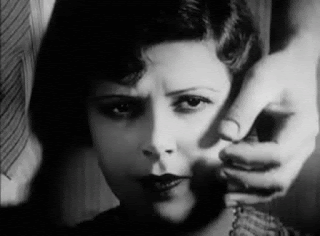https://www.tumblr.com/search/tv:%20wibbly%20wobbly%20timey%20wimey
The auteur theory suggests the "camera as steelo". They then talked about The French New Wave (50s-60s), the most famous example being The 400 Blows. In the 1800s, France was prosperous with the industrial revolution and the leader in new technology with the Eiffel Tower. With the invention of photography, artists had to be more expressive and experimental. This era was also known as 'Belle Epoque' ('Beautiful Life') where people lived life to the full. A few examples of films from the late 1800's are the Lumiere Brothers and Voyage Dans La Lune.
http://67.media.tumblr.com/tumblr_m32kccxUQL1qzxt5zo1_500.gif
World War 1 saw a decrease in French technology and the film industry. Filmmakers managed to appeal so they could produce one film every seven films America produced. They broke free from traditions with 1920s surrealism, with films such as Un Chien Andalou.
http://s2.photobucket.com/user/Christopher4myspace/media/Une%20Chien%20Andelou/5_zps3748b392.gif.html
Poetic Realism was the next era of filmmaking where people yearned for the Golden Age. And apparently "the nazis were another thing altogether". The next era was Calkiers de Cinema (sp?) with Andre Bazin in the 60s where they opposed plot as it was too mainstream.
Mise-en-scene tends to be the auteur's focus, with directors having "interior meanings". However some criticism of the theory is that films should be films in their own right, and if to understand a director's interior meaning, you have to watch all of their films? Or if it's collaborative? Can we even class it as a theory, is it too general?
----------------------------------------------------------------------------------------------------------------------
In Tuesday's session, we covered Agency, The Auteur and The Audience. A few key terms;
- Agency: state of acting (action or power)
- Auteur: director gives film character. Practice is distinctive
- Auteur theory: 'director-as-author'. Oversees all audio and visual elements. Personal stamp.
- Audience: interprets work, can be imaginary or real.
“[audience] consists of those persons who are capable of being influenced by discourse and of being mediators of change” - L. F. Bitzer
Personal/collective agency informs creative process and defines the final shape of the work. The author has free reign to be an active auteur. An agent auteur tends to be a writer, actor, director. Woody Allan is a good example of this, with his autobiographical context with a very visceral sense of his culture. The audience also relate to this (I think that's what the lecturerwas saying? I'm not quite fluent yet. Kinda lost concentration at this point, his PowerPoints are too long and wordy).
Me trying to decipher the lectures
https://www.tumblr.com/search/m:%20midnight%20in%20paris
Here I wrote "personal agency negotiated creative act in a social context", not quite sure what that means.
The audience and auteur's needs can be similar or dissimilar, each with different consequences (I can't quite deciper my notes about this sadly. Something about authenticity). One scenario is when the author produces work they want to do and the audience is given what they want. An example of this is Chaplin's The Great Dictator.
http://giphy.com/search/great-dictator
Another scenario is that the key agent imposes authority and uses his free expression to give the audience what they think they want. A good example of this is public information films.
However, the audience can sometimes hold authority and get the outcome they want. An example can be the spontaneous applause after Lady Dianna's funeral.
Or, a compromise can be reached and a topic can be valued by both parties. An example can be Oh! What A Lovely War.




